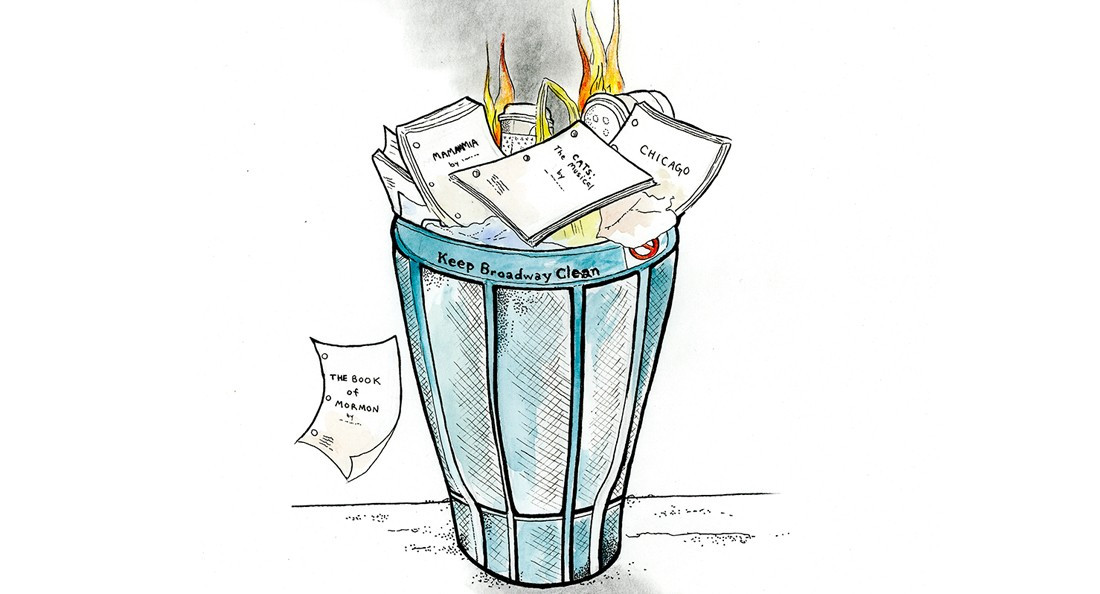No Gods, No Masters, No More Musical Revivals
If it isn’t politically relevant, I don’t want it
My name is Frances Koncan, and I hate musical theatre.
I say this often, and I really do mean it … sort of.
Now, for the record, I’ve seen a lot of musicals. In fact, for many years, I was what you might call a musical theatre nerd. Truthfully, ever since I saw The Threepenny Opera and a half-naked, leather-clad Alan Cumming touched my shoulder, I was a die-hard musical theatre geek, and a part of me still is. I can’t stop thinking about the stunning Lazarus, the musical directed by Ivo Van Hove, written by Enda Walsh, with music by David Bowie, starring Michael C. Hall. And I think Natasha, Pierre, and the Great Comet of 1812 is one of the best musicals of the decade, even though its star Josh Groban never replied to my tweet when I asked him out on a date. I even have tickets to Hadestown and Be More Chill coming up that I’m pretty excited for … but mostly, I’m excited about Lucas Hnath’s Hillary and Clinton and Alan Cumming’s latest project, Daddy. (I hope there is more leather.)
I used to love musicals. What changed? Or maybe, what hasn’t changed?
A new musical is a huge risk, and many shows lose money, which means producers play it safe by reviving established musicals, which means audiences experience the same work over and over again. Many of these standards are problematic at best. Chicago is an appropriation of jazz that completely erases the people it borrows from; Matilda features a male-identifying actor in the role of a woman, played for comedy; the lone female of Jesus Christ Superstar’s big song is pining over a man (the eponymous Jesus); The Mikado famously features yellowface. Musicals that subscribe to tradition subscribe to tradition in ways both good and bad: they may be classics, but these classics feature subtle or overt microagression, racism, sexism and a lot of other “-isms” that just don’t fly these days.
That’s the problem I have with most musicals: they don’t textually reflect the current world we live in, and directors are unwilling to politicize the work in the ways necessary to make them relevant. Straight plays seem to be more easily updated and made relevant ... a recent and wonderful production of The Glass Menagerie (FINALLY!) featured a performer with a mobility disability as Laura, a character with a mobility disability.
For every Into the Woods and Cabaret, two classics that I’m still pretty happy with, artists and audiences are still primarily of work like South Pacific, in which a white woman sings about washing a “man right out of her hair” because he has a child with a non-white partner. We’re contending with a century of work tainted by sexism and racism.
I guess the truth is that I don’t hate musicals. I’m just disappointed in musicals. I’m tired of musicals. I’m exhausted watching out-of-touch ideals of the past be perpetuated for the sake of a catchy tune. And while a classic musical may sell well and be a safe bet for producers, I think audiences are tired of all this as well.
Frances Koncan is a writer, director and producer of mixed Anishinaabe and Slovene descent. As the artistic director of Vault Projects, she is committed to creating work that is accessible, intersectional and presented in welcoming spaces!
Published in Volume 73, Number 17 of The Uniter (February 7, 2019)








